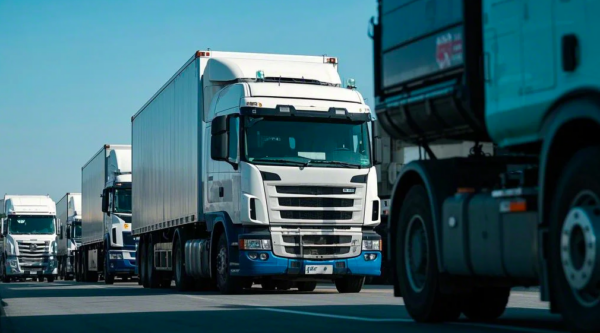In the ever-evolving world of logistics, trucks play an integral role in ensuring the efficient transportation of goods across various distances. A logistics truck, commonly used in the transportation and supply chain industries, comes in many different types, each designed to meet specific needs. From large hauls to local deliveries, logistics trucks are the backbone of the supply chain.

Types of Logistics Trucks
1. Flatbed Logistics Truck
A flatbed logistics truck is a versatile vehicle often used for transporting bulky or oversized loads that do not require an enclosed cargo space. This type of truck has an open bed, allowing goods of various sizes and shapes to be loaded and unloaded easily. Flatbed trucks are commonly used for delivering construction materials, heavy machinery, and large industrial equipment.
2. Refrigerated Logistics Truck
When transporting temperature-sensitive goods such as food, pharmaceuticals, or chemicals, a refrigerated logistics truck is essential. These trucks come equipped with temperature-controlled units that ensure perishable items remain at the appropriate temperature throughout the journey. This capability makes refrigerated trucks crucial for supply chains dealing with products that require strict temperature regulations.
3. Box Truck
A box truck, also known as a straight truck, is commonly used for urban deliveries and smaller hauls. It has an enclosed cargo area with walls, a roof, and a floor, providing security and protection for goods from external elements. A logistics truck of this type is ideal for moving furniture, electronics, or other items that need to be kept safe from weather conditions.
4 . Tank Truck
A tank logistics truck is designed for transporting liquids or gases. These trucks have cylindrical tanks that are specially built to safely carry hazardous materials like fuel, chemicals, or even food-grade liquids. Tank trucks are highly regulated and require specific safety measures to ensure the safe handling and transport of the contents.
5. Dump Truck
A dump logistics truck is used for transporting loose materials such as sand, gravel, or construction debris. With a hydraulically operated bed, the rear of the truck can be raised to dump its contents, making it incredibly efficient for construction projects and waste management. Dump trucks are vital for moving large quantities of material in industries such as mining and construction.
The Importance of Logistics Trucks in the Supply Chain
Logistics trucks are essential for moving goods between suppliers, warehouses, distribution centers, and retailers. Without a reliable logistics truck fleet, the global supply chain would grind to a halt. These trucks enable companies to fulfill customer orders efficiently, ensuring that products are delivered on time and in good condition.
Moreover, logistics trucks offer flexibility. Different trucks are designed to meet specific transportation needs, from short-distance urban deliveries to long-haul interstate freight. This versatility makes logistics trucks an indispensable part of the transportation sector.
In addition, logistics trucks support the just-in-time inventory model. This approach reduces the need for warehouses to hold excessive stock, as goods can be delivered as needed. A logistics truck is a key player in maintaining this system, enabling businesses to reduce costs while meeting customer demands quickly and effectively.
Conclusion
In conclusion, logistics trucks are an essential component of the modern supply chain, offering a wide range of benefits, from flexibility and reliability to efficiency and cost-effectiveness. By understanding the different types of logistics trucks and their applications, businesses can make informed decisions about which trucks to use for their operations. Whether you’re transporting perishable goods, oversized items, or hazardous materials, the right logistics truck can significantly improve the efficiency of your supply chain, ensuring timely deliveries and customer satisfaction.


